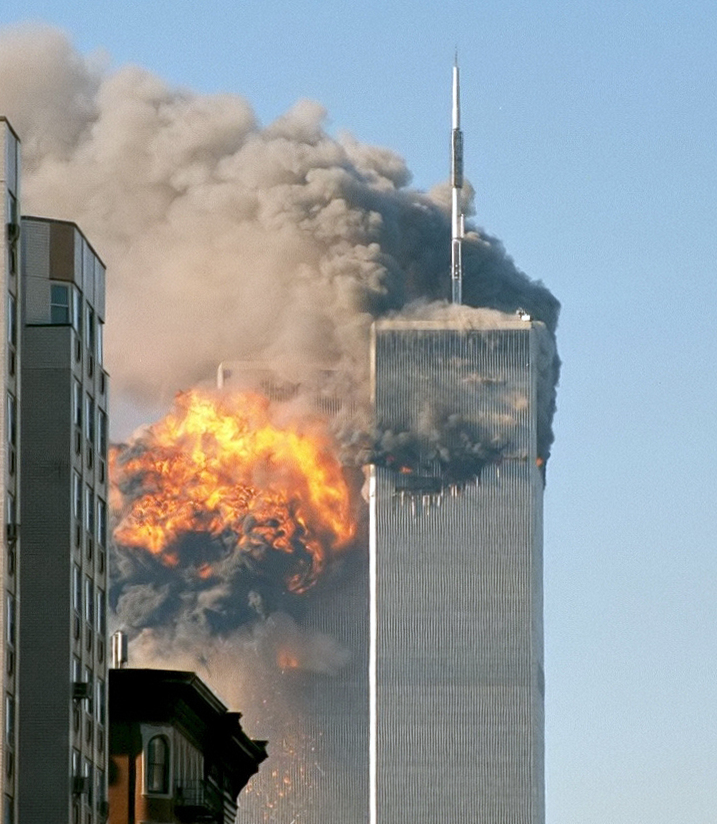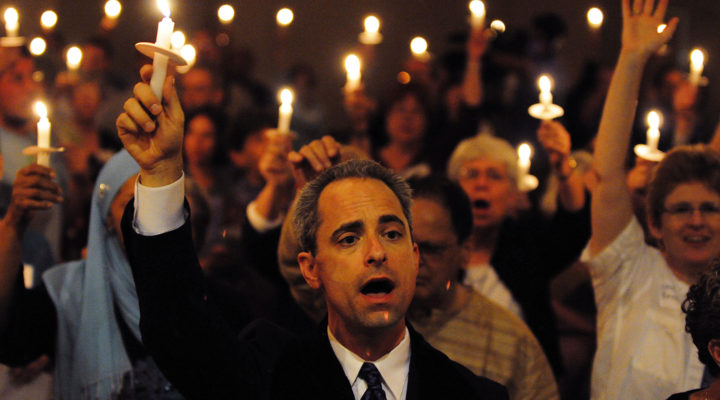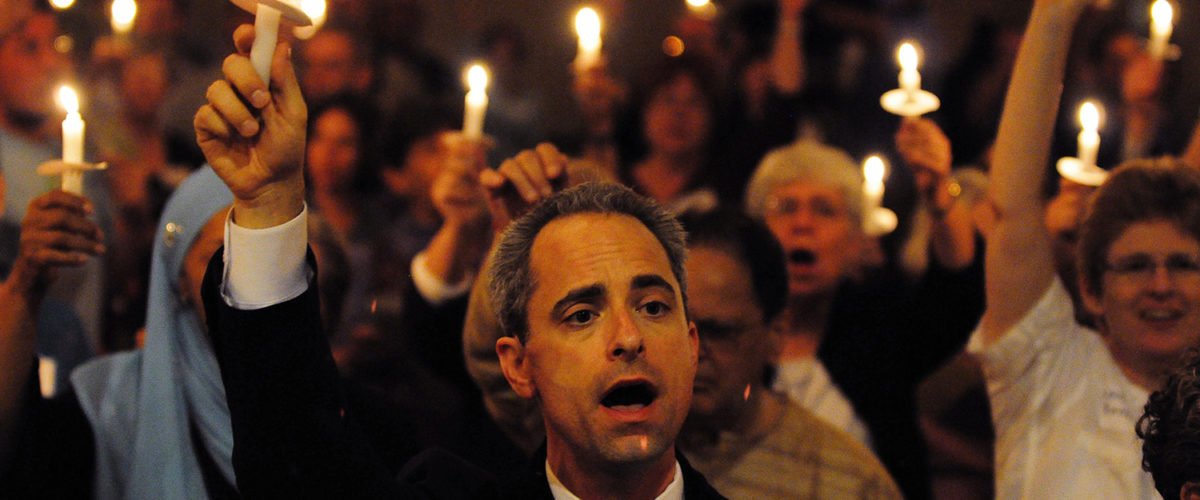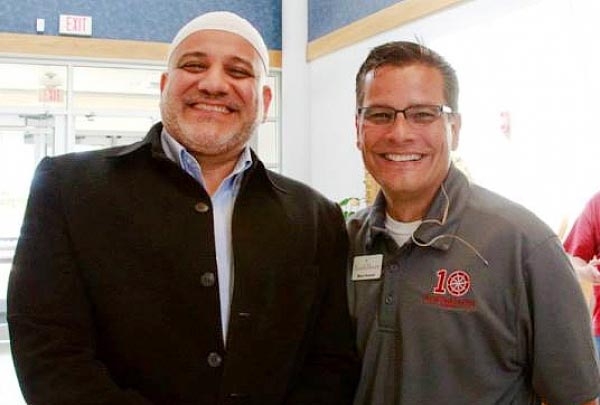What a difference 15 years makes.
Since the Sept. 11, 2001, terror attacks, the United States has endured two gut-wrenching wars and a resulting debate over immigrants, refugees and Muslims that divides the nation.
But there also has been enough time since 9-11 to inspire new perspective and growth for those willing to seek it, some religious leaders say.

The north face of Two World Trade Center (south tower) immediately after being struck by United Airlines Flight 175. (Photo/Wikipedia)
The attacks inspired local and nationwide interfaith movements that have deepened the faith of participants and fostered relationships between Christians, Jews, Muslims and other traditions where there had been few or none before.
Baptist minister Mitch Randall and Muslim leader Imad Enchassi could be considered posterchildren of that post-9/11 reality.
“I hesitate to call 9/11 a blessing, but one blessing that came from that tragedy was the opportunity to seek out new friendships, to understand new cultures and to really make a connection with people with whom I would not have made a connection prior to that,” Randall, the pastor at NorthHaven Church in Norman, Okla., told Baptist News Global.
Prior to the attacks on the World Trade Center and the Pentagon that day in 2001, many American Muslims were content to wall themselves off from mainstream American life, safe in their homes and mosques, said Enchassi, spiritual leader of the Islamic Society of Greater Oklahoma City.
Afterward, mosques opened to surrounding communities, Muslims reached out to law enforcement and Muslim artists, comics and books came out of the woodwork. Muslims also embraced people from other faiths.
“As we speak today, the more hardships we go through the more it solidifies our interfaith community,” Enchassi said.
‘Brothers from another mother’
Struck by the significance of Sunday’s 15th anniversary, Randall penned a blog post last week titled “Growing Up After 9/11.”
He began with a citation from First Corinthians in which Paul recalled giving up childish reasoning for adult thinking and actions.
September 2001 awoke Americans to that very choice. They were confronted by the reality that their nation is hated by many around the world, he wrote, giving them the option of descending into that hatred or rising above it.
Randall told BNG his decision to meet and understand Muslims has pushed him to do a lot of growing up – including in his own faith.
Through Enchassi and other Muslim friends, Randall said he gained a deeper understanding of Christianity in the Bible.
It was an awakening, for example, to learn that Abraham’s sons Isaak, from whom Judaism and Christianity are said to emerge, and Ishmael, who is identified with Arabs and Islam, maintained a relationship after the latter’s exile.
That is evidenced by a passage in Genesis in which the two later bury their father.
It is a model for Christian-Muslim understanding, he said.
“That is a biblical relationship that needs to be touted and practiced in our culture,” Randall said.
The brotherhood of Isaac and Ishmael has inspired the relationship between Randall and Enchassi, the imam said.
In the years since 9/11, the two have worshiped in each other’s sanctuaries, participated in interfaith panels and both appeared in a documentary titled “Different Books, Common Word: Baptists and Muslims.”
“Our relationship has been solid ever since,” Enchassi said. “We are more than just friends.”
In fact they are family, he said in a comment linking to Randall’s blog.
“Honored to call Mitch Randall a brother from another mother,” he said.



